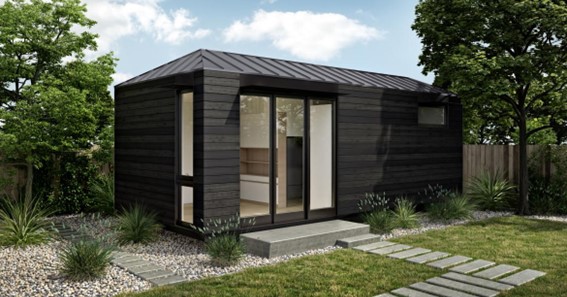Amid the high cost of living, individuals and governments are finding dependable ways to ease the adverse effects of livelihood regardless of how much you earn or the number of dependents you have. And one of the ways that are now popular is the introduction of dwelling units. Initially, dwelling units were a way of reducing displacement risks for lower-income residents and stabilizing neighborhoods with reliable housing options. But today, dwelling units are helping people fight the adverse effects of the increased cost of living by serving as home expansion options that fit as guest houses for visitors or kitchens and washrooms for owners.
The same also helps fight the living crisis most people face due to the lack of enough money to expand and buy more land for building new homes. An excellent example of how dwelling units are changing the way we develop our homesteads is at this Portland’s trusted ADU builder company. At companies like this, you will understand and explore how dwelling units have become most people’s low-cost ways of adding affordable housing into their communities. People are also using these units to limit displacement risks among low-income earners and as a viable option to build less costly spaces inside their residences. But besides these advantages, let’s also explore the other names of dwelling units and the available types you can also construct within your homestead.
The Other Names of Dwelling Units and the Available Types You Can Build
A dwelling unit has more than one name. It’s sometimes known as an additional built unit or an accessory dwelling unit. These names refer to the extra spaces or units you can build on your residential property for different reasons.
For example, you can construct an accessory dwelling unit to increase your property’s value or add rental spaces. At the same time, these units can serve as extra kitchens or bathrooms in a place with many residents.
The Types of Dwellings Units with Their Differences or Similarities
Depending on the size of your property or land, some of the common types of dwelling units you can build include the following.
Interior or Basement Dwelling Units
If you have a basement unit, one of the types of dwelling units you can build is an interior unit. Also known as a basement conversion, a basement accessory unit is an internal unit you can make to create a basement apartment like an in-law or kids’ suite. Unlike the other dwelling units, a basement unit features an exterior entrance that separates it from the main house. If you need help from a professional, you can engage with the basement conversion specialist to achieve your preferred design.
Depending on your preferences and the intended uses for the basement apartment, you may or may not require an entrance to and from the main house. For example, you can build a basement-dwelling unit as an employee living quarter without an entry to and from the main home to provide enough privacy for workers.
Or, if you decide to build a basement apartment with an entrance to the main home, you can still use it as an extra kitchen or washroom. But to know if you can build your basement apartment unit with an entrance to the main house, you still need to check with your state regulations regarding this.
Some states don’t allow basements units to have doorways to the existing houses, while others guarantee it. So, depending on your preferences and your state laws governing this, your basement-dwelling apartment can have a separate door or not.
Detached Dwelling Units
Compared to basement apartments, detached accessory units offer the most privacy because they are smaller and share the same compound as the main house. Detached units are also usually small, with most people mistaking them for tiny houses.
Still, they are not actual tiny houses because they don’t have the features most tiny houses have. For example, detached units are permanent, while others are not. Moreover, detached units are most people’s viable options compared to other accessory dwelling units because although they share the same compound with the main house, they are separate from it and can serve as rental spaces for tenants.
But still, both detached and basement-dwelling units are similar in that they are all subject to state building codes in most places. For example, some states require you to have or construct a detached dwelling unit in similar style and designs as others or that of your main house.
However, whether you want an extra unit in your basement or an additional kitchen or bathroom, building a dwelling unit will help regardless of the space left or your budget for expanding your homestead.







